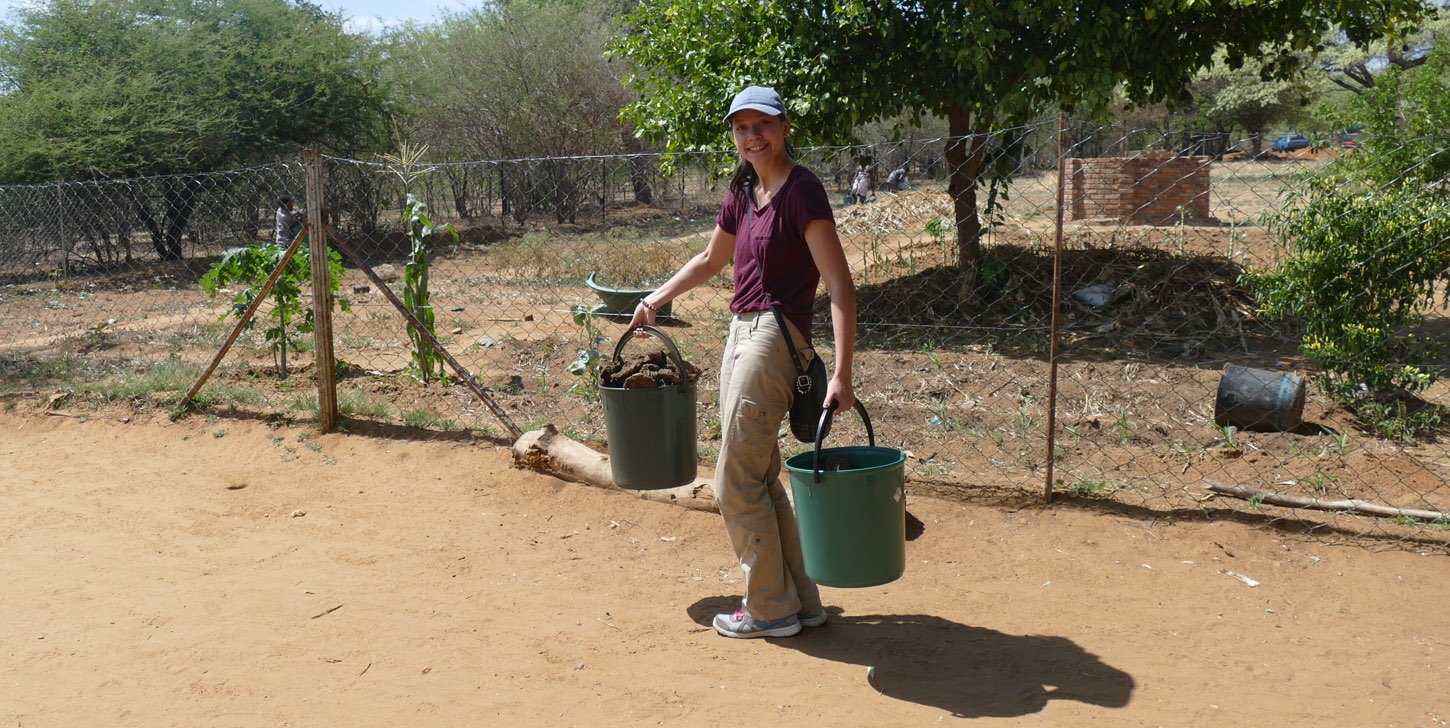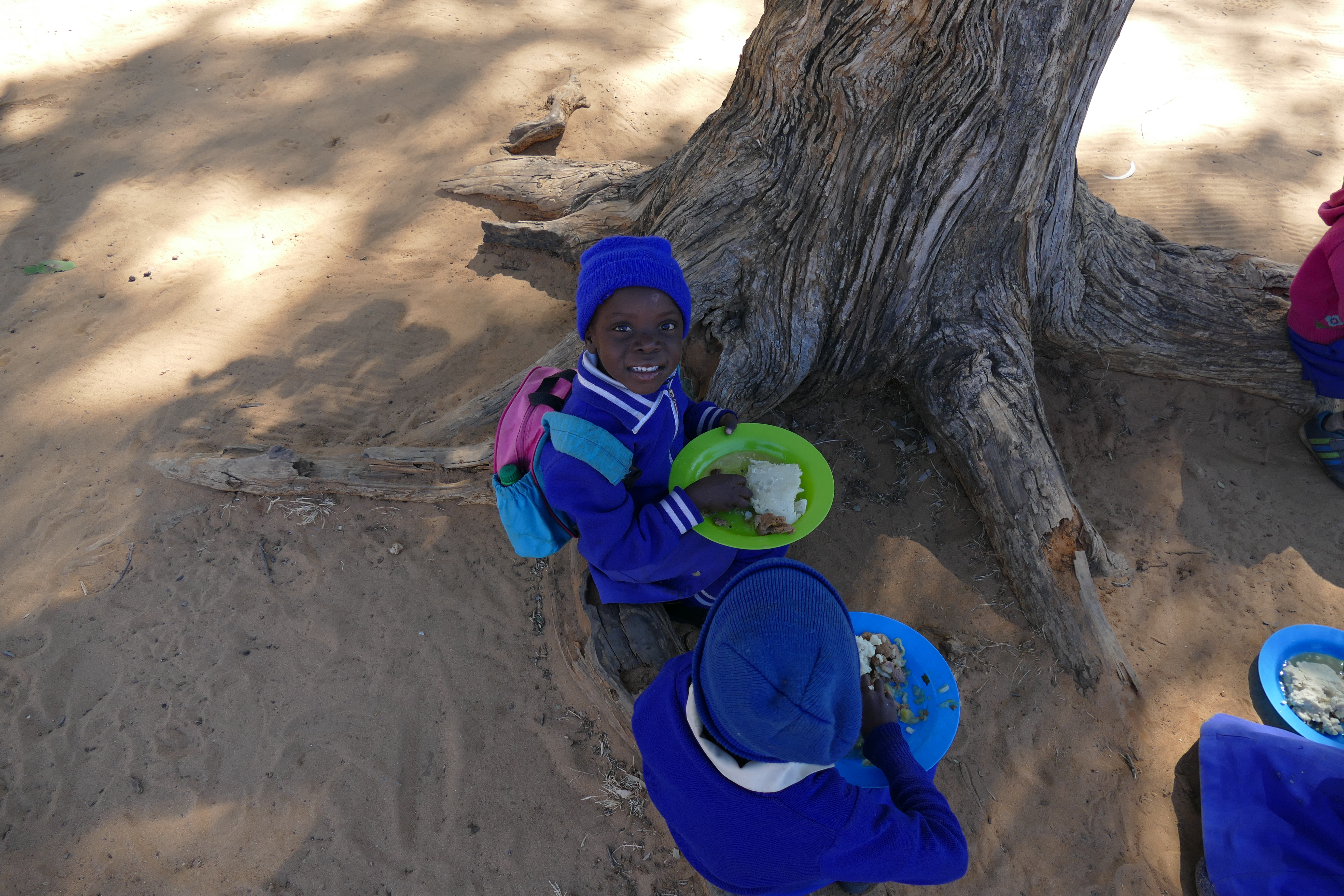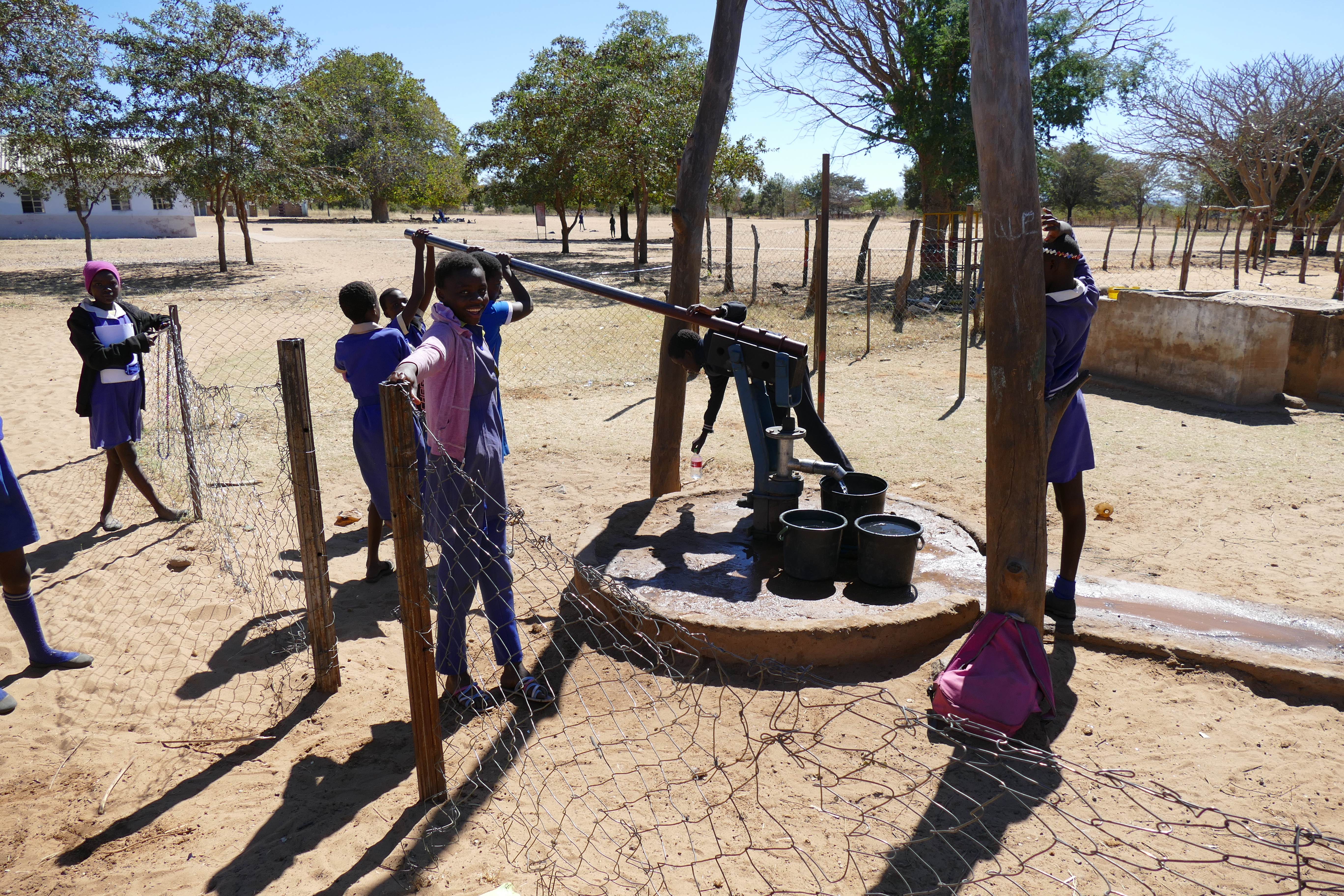Employee Spotlight: Maria Keasey

About two and a half years ago, my family started a feeding program at two schools in Zimbabwe. One of the schools is located right outside of Hwange National Park, and the other is located outside of the Victoria Falls area.
The feeding program started after my uncle and his family visited Zimbabwe and were told that the students were fainting in class. The students at these two schools weren’t getting enough protein in their diet, and the only meal they were getting every day was from their school lunch. After a few months of a steady feeding program and no more fainting incidents, my family decided that simply providing one meal a day to these kids wasn’t a sustainable solution to the challenges that are going on in these communities.

There are many reasons as to why these students weren’t eating enough protein—ranging from the political and economic climate in Zimbabwe to the lack of food security and water in their communities. More than half of the students at Monde Primary School are orphans due to HIV/AIDS.
In the Monde community, there was only one hand pump borehole that the community used as their source of water. When that borehole broke, there would be no water for the community. Recently, my family worked with the people in the Monde Community to address their water security issue—installing a fully functioning water system that goes around the entire perimeter of the school, with three water storage tanks for emergencies. Now, there are trenches and taps that the community can get its water from.

With the new water system up and running, we are working with the community to develop an agriculture program at the school, as well as community gardens around the school, where the water taps are located.
Zimbabwe used to be the breadbasket of Africa, but after land reform, most of the soil turned into sand and is still not viable for sustainable agriculture. To help improve the land, we started a program at Monde Primary School called Manure Mondays—in which students trade off bringing in a bucket of manure for their school garden. Since many of the community’s goats and cattle roam around freely, there is plenty of manure to nourish the dry land and, ultimately, help the community grow their own food.
Another project that we are working on at Monde Primary School are lavatories and hand-washing stations. Right now at the school, there are only glory holes (with no hand-washing stations) for the kids to use the bathroom—and since the cattle and goats roam around the school, the animals also meander into the lavatories. About half of the students and many other people in the Monde community have suffered from dysentery and diarrhea multiple times—which is especially unfortunate since these are preventable diseases.
This month, we are working on building flushable toilets and hand-washing stations right outside of the lavatories and near the kitchen area where the kids eat their lunch.
Finally, along with the sanitation projects for the students, we are simultaneously working on improving the teachers’ quarters. The teachers currently live on the school grounds in small rooms with the same lavatory facility as the students (glory hole and no hand-washing stations). The shower they use, which is just an old tin roof surrounding a tree, has no water—so they have to walk over to the community borehole, pump cold water, and use the water they collect. Soon, the teachers will be getting a solar-powered shower, as well as a new lavatory powered by the new water system just installed at the school.
As you can see, there is so much happening in the Monde community! People are feeling empowered and eager to continue this sustainable development. It’s amazing what they have been able to accomplish in just two years, but there is still a long way to go.
My family and I are so fortunate to have been a part of this process because we know how important water, sanitation, and agriculture are. Without them, development cannot happen. We are so eager to see what comes next with the agriculture projects—and are excited to see students succeeding in school, as well as an empowered community!
Like what you read? Check out this related post:
